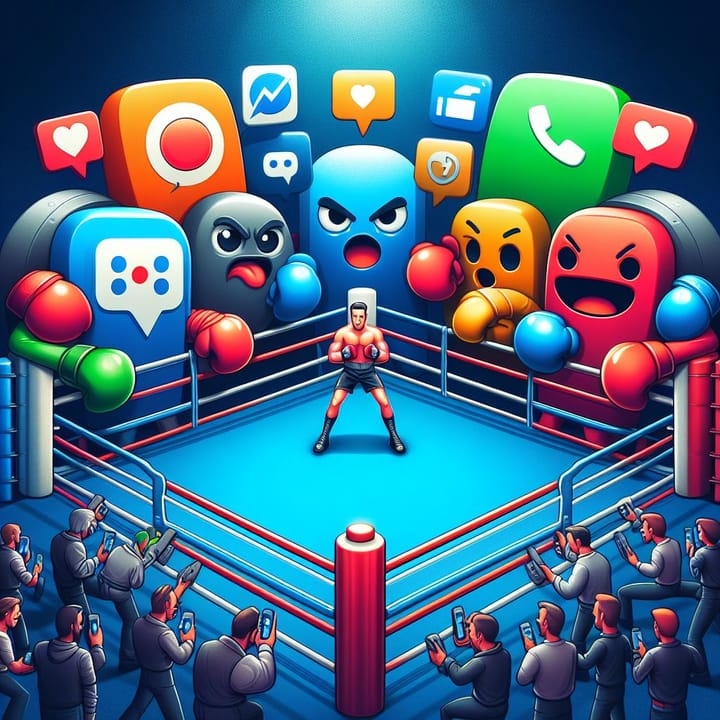Introducing 'Peer Production on the Crypto Commons'


This post is about why I wrote “Peer Production on the Crypto Commons”, a free book type resource (website, ebook, pdf).
The short answer is that I am inspired by the people who see some broken aspect of their society and set about to fix it or build an alternative. I am not optimistic about the direction in which the dominant global institutions are steering our society. I am optimistic about what we can do to re-engineer things if we continue to better leverage the benefits of the digital commons and the freedom to communicate and distribute information securely at low cost.
I am excited by the prospect of coordinating to solve societal problems without centralizing power, and at the intersection of the digital commons, cryptography and decentralized consensus there are now many people working on these problems. I wrote this book because I want more people to look at the technology from this perspective, to recognize and build on the opportunities afforded by the crypto commons. I hope people will find it useful, that it will help them to better understand what’s going on and how it might be relevant to their interests.
I started working on this book in early 2019. As part of the crypto governance research project I was refining a set of questions about the governance of blockchains, and I started trying to articulate why I found the answers to those questions particularly useful and interesting. It was initially going to be a readme file to explain the project, then I thought maybe it should be an article, but by the time I had sketched out what it needed to cover it started to seem more like a website or book.
My perception of blockchains is shaped by recognizing in them aspects of Commons Based Peer Production, and viewing their governance as an exercise in the stewardship of a Common Pool Resource. These are I believe highly relevant concepts for understanding how blockchains are constructed, and they are not often referenced in this regard. I set out to write something which would introduce the concepts, reason about how they apply to the cryptocurrency space, and provide an overview of some observational data with notes about how to interpret it within this framework.
Commons Based Peer Production (CBPP) is a mode of production that has given us Open Source Software (including the digital infrastructure the internet runs on), Wikipedia and countless other wikis, Open Street Map, The Pirate Bay, Ushahidi, etc. When the barriers to communication and sharing of work are removed, people can produce great things together, often in the absence of tangible incentives.
Blockchains rely on CBPP (as it is inherent to open source software) and they are also transforming the dynamics around the organization and funding of CBPP. I see this as highly significant, because I see CBPP as one of the most promising developments in human coordination since the embrace of the Internet.
Blockchains are adding powerful engines that incentivize CBPP work in new ways. Their aims go beyond producing an information resource to providing critical public infrastructure, like a global money or a world computer.
CBPP deals with the production of information goods which are in practice “non rival” goods (infinitely reproducible an minimal cost). This is true of blockchain software but not of the resource or service these networks provide. Space on a blockchain is limited because it comes at a cost, the chain must be stored and shared by every node in the network.
The blockchain resource itself is therefore best considered as a Common Pool Resource (CPR), which can be accessed by all and enforces strict rules about how it can be used. The literature on management of CPRs is therefore relevant, and the work of Elinor Ostrom on this subject is considered.
One of the great things about cryptocurrency is that the resources you need to learn and participate are freely available on the commons. This book aims to add to that repository of free information, and to expand awareness of the kinds of opportunity that are available.
The means to learn and the tools (programming languages and libraries) are free to access. There are significant efforts to develop commons based infrastructure underway, and in many cases these are looking for contributors. There is funding for this work from a variety of sources.
I think there are great opportunities here for people who are marginalized by the dominant socioeconomic systems or who wish to opt out for whatever reason - to build their own common pool resources and a parallel economy on this foundation. I want to see the “legacy” financial system have to compete with alternatives that are commons-based and fairer, enforcing the same rules for all parties.
I hope this book will spark some ideas about how to contribute or what/how to build “on the crypto commons”.
I can make these resources freely available because my work is supported by the Open Source Research Program. Cheers to the Decred stakeholders who approved this program for the freedom it has afforded me to pursue my research interests and produce whatever outputs make sense.
Thanks also to the Decred community for providing a lot of food for thought on the subject, both in terms of the discussions and the sharing of links to useful resources or interesting stories.
My intention is to improve and expand on Peer Production on the Crypto Commons over time, maintaining it more like a piece of free software than a book. The idea is that the crypto governance research project will feed into it, collecting and organizing new information about covering more projects, which may lead to insights that go in the book.
The website does no tracking, so if you find PPCC useful and would like to see it improved please make that known somehow (GitHub, twitter, Riot, email). Feedback in general will be gratefully received, and will help to determine what v1.0 looks like.
Hope you enjoy it.
Richard





Comments ()